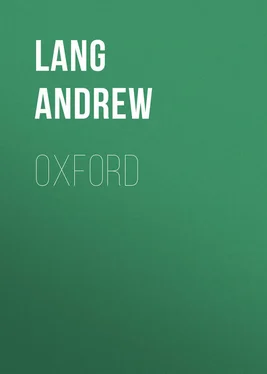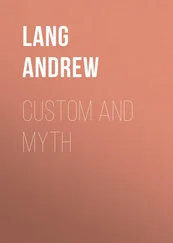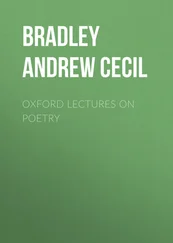Andrew Lang - Oxford
Здесь есть возможность читать онлайн «Andrew Lang - Oxford» — ознакомительный отрывок электронной книги совершенно бесплатно, а после прочтения отрывка купить полную версию. В некоторых случаях можно слушать аудио, скачать через торрент в формате fb2 и присутствует краткое содержание. Жанр: foreign_antique, foreign_prose, на английском языке. Описание произведения, (предисловие) а так же отзывы посетителей доступны на портале библиотеки ЛибКат.
- Название:Oxford
- Автор:
- Жанр:
- Год:неизвестен
- ISBN:нет данных
- Рейтинг книги:5 / 5. Голосов: 1
-
Избранное:Добавить в избранное
- Отзывы:
-
Ваша оценка:
- 100
- 1
- 2
- 3
- 4
- 5
Oxford: краткое содержание, описание и аннотация
Предлагаем к чтению аннотацию, описание, краткое содержание или предисловие (зависит от того, что написал сам автор книги «Oxford»). Если вы не нашли необходимую информацию о книге — напишите в комментариях, мы постараемся отыскать её.
Oxford — читать онлайн ознакомительный отрывок
Ниже представлен текст книги, разбитый по страницам. Система сохранения места последней прочитанной страницы, позволяет с удобством читать онлайн бесплатно книгу «Oxford», без необходимости каждый раз заново искать на чём Вы остановились. Поставьте закладку, и сможете в любой момент перейти на страницу, на которой закончили чтение.
Интервал:
Закладка:
Though Robert was bent on works of war, he had a nature inclined to piety, and, his piety beginning at home, he founded the church of St. George within the castle. The crypt of the church still remains, and is not without interest for persons who like to trace the changing fortunes of old buildings. The site of Robert’s Castle is at present occupied by the County Gaol. When you have inspected the tower (which does not do service as a dungeon) you are taken, by the courtesy of the Governor, to the crypt, and satisfy your archæological curiosity. The place is much lower, and worse lighted, than the contemporary crypt of St. Peter’s-in-the-East, but not, perhaps, less interesting. The square-headed capitals have not been touched, like some of those in St. Peter’s, by a later chisel. The place is dank and earthy, but otherwise much as Robert D’Oily left it. There is an odd-looking arrangement of planks on the floor. It is the new drop , which is found to work very well, and gives satisfaction to the persons who have to employ it. Sinister the Norman castle was in its beginning, ‘it was from the castle that men did wrong to the poor around them; it was from the castle that they bade defiance to the king, who, stranger and tyrant as he might be, was still a protector against smaller tyrants.’ Sinister the castle remains; you enter it through ironed and bolted doors, you note the prisoners at their dreary exercises, and, when you have seen the engines of the law lying in the old crypt you pass out into the place of execution. Here, in a corner made by Robert’s tower and by the wall of the prison, is a dank little quadrangle. The ground is of the yellow clay and gravel which floors most Oxford quadrangles. A few letters are scratched on the soft stone of the wall – the letters ‘H. R.’ are the freshest. These are the initials of the last man who suffered death in this corner – a young rustic who had murdered his sweetheart. ‘H. R.’ on the prison wall is all his record, and his body lies under your feet, and the feet of the men who are to die here in after days pass over his tomb. It is thus that malefactors are buried, ‘within the walls of the gaol.’
One is glad enough to leave the remains of Robert’s place of arms – as glad as Matilda may have been when ‘they let her down at night from the tower with ropes, and she stole out, and went on foot to Wallingford.’ Robert seems at first to have made the natural use of his strength. ‘Rich he was, and spared not rich or poor, to take their livelihood away, and to lay up treasures for himself.’ He stole the lands of the monks of Abingdon, but of what service were moats, and walls, and dungeons, and instruments of torture, against the powers that side with monks?
The Chronicle of Abingdon has a very diverting account of Robert’s punishment and conversion. ‘He filched a certain field without the walls of Oxford that of right belonged to the monastery, and gave it over to the soldiers in the castle. For which loss the brethren were greatly grieved – the brethren of Abingdon. Therefore, they gathered in a body before the altar of St. Michael – the very altar that St. Dunstan the archbishop dedicated – and cast themselves weeping on the ground, accusing Robert D’Oily, and praying that his robbery of the monastery might be avenged, or that he might be led to make atonement.’ So, in a dream, Robert saw himself taken before Our Lady by two brethren of Abingdon, and thence carried into the very meadow he had coveted, where ‘most nasty little boys,’ turpissimi pueri , worked their will on him. Thereon Robert was terrified and cried out, and wakened his wife, who took advantage of his fears, and compelled him to make restitution to the brethren.
After this vision, Robert gave himself up to pampering the monastery and performing other good works. He it was who built a bridge over the Isis, and he restored the many ruined parish churches in Oxford – churches which, perhaps, he and his men had helped to ruin. The tower of St. Michael’s, in ‘the Corn,’ is said to be of his building; perhaps he only ‘restored’ it, for it is in the true primitive style – gaunt, unadorned, with round-headed windows, good for shooting from with the bow. St. Michael’s was not only a church, but a watchtower of the city wall; and here the old northgate, called Bocardo, spanned the street. The rooms above the gate were used till within quite recent times, and the poor inmates used to let down a greasy old hat from the window in front of the passers-by, and cry, ‘Pity the Bocardo birds’:
‘Pigons qui sont en l’essoine,
Enserrez soubz trappe volière,’
as a famous Paris student, François Villon, would have called them. Of Bocardo no trace remains, but St. Michael’s is likely to last as long as any edifice in Oxford. Our illustrations represent it as it was in the last century. The houses huddle up to the church, and hide the lines of the tower. Now it stands out clear, less picturesque than it was in the time of Bocardo prison. Within the last two years the windows have been cleared, and the curious and most archaic pillars, shaped like balustrades, may be examined. It is worth while to climb the tower and remember the times when arrows were sent like hail from the narrow windows on the foes who approached Oxford from the north, while prayers for their confusion were read in the church below.
That old Oxford of war was also a trading town. Nothing more than the fact that it was a favourite seat of the Jews is needed to prove its commercial prosperity. The Jews, however, demand a longer notice in connection with the still unborn University. Meanwhile, it may be remarked that Oxford trade made good use of the river. The Abingdon Chronicle (ii. 129) tells us that ‘from each barque of Oxford city, which makes the passage by the river Thames past Abingdon, a hundred herrings must yearly be paid to the cellarer. The citizens had much litigation about land and houses with the abbey, and one Roger Maledoctus (perhaps a very early sample of the pass-man) gave Abingdon tenements within the city.’ Thus we leave the pre-Academic Oxford a flourishing town, with merchants and moneylenders. As for the religious, the brethren of St. Frideswyde had lived but loosely ( pro libito viverunt ), says William of Malmesbury, and were to be superseded by regular canons, under the headship of one Guimond, and the patronage of the Bishop of Salisbury. Whoever goes into Christ Church new buildings from the river-side, will see, in the old edifice facing him, a certain bulging in the wall. That is the mark of the pulpit, whence a brother used to read aloud to the brethren in the refectory of St. Frideswyde. The new leaven of learning was soon to ferment in an easy Oxford, where men lived pro libito , under good lords, the D’Oilys, who loved the English, and built, not churches and bridges only, but the great and famous Oseney Abbey, beyond the church of St. Thomas, and not very far from the modern station of the Great Western Railway. Yet even after public teaching in Oxford certainly began, after Master Robert Puleyn lectured in divinity there (1133; cf. Oseney Chronicle ), the tower was burned down by Stephen’s soldiery in 1141 ( Oseney Chronicle , p. 24).
CHAPTER II
THE EARLY STUDENTS – A DAY WITH A MEDIEVAL UNDERGRADUATE
Oxford, some one says, ‘is bitterly historical.’ It is difficult to escape the fanaticism of Antony Wood, and of ‘our antiquary,’ Bryan Twyne, when one deals with the obscure past of the University. Indeed, it is impossible to understand the strange blending of new and old at Oxford – the old names with the new meanings – if we avert our eyes from what is ‘bitterly historical.’ For example, there is in most, perhaps in all, colleges a custom called ‘collections.’ On the last days of term undergraduates are called into the Hall, where the Master and the Dean of the Chapel sit in solemn state. Examination papers are set, but no one heeds them very much. The real ordeal is the awful interview with the Master and the Dean. The former regards you with the eyes of a judge, while the Dean says, ‘Master, I am pleased to say that Mr. Brown’s papers are very fair, very fair. But in the matters of chapels and of catechetics , Mr. Brown sets – for a scholar – a very bad example to the other undergraduates. He has only once attended divine service on Sunday morning, and on that occasion, Master, his dress consisted exclusively of a long great-coat and a pair of boots.’ After this accusation the Master will turn to the culprit and observe, with emphasis ill represented by italics, ‘Mr. Brown, the College cannot hear with pleasure of such behaviour on the part of a scholar . You are gated , Mr. Brown, for the first fortnight of next term.’ Now why should this tribunal of the Master and the Dean, and this dread examination, be called collections? Because ( Munimenta Academica , Oxon., i. 129) in 1331 a statute was passed to the effect that ‘every scholar shall pay at least twelve pence a-year for lectures in logic, and for physics eighteenpence a-year,’ and that ‘all Masters of Arts except persons of royal or noble family, shall be obliged to collect their salary from the scholars.’ This collection would be made at the end of term; and the name survives, attached to the solemn day of doom we have described, though the college dues are now collected by the bursar at the beginning of each term.
Читать дальшеИнтервал:
Закладка:
Похожие книги на «Oxford»
Представляем Вашему вниманию похожие книги на «Oxford» списком для выбора. Мы отобрали схожую по названию и смыслу литературу в надежде предоставить читателям больше вариантов отыскать новые, интересные, ещё непрочитанные произведения.
Обсуждение, отзывы о книге «Oxford» и просто собственные мнения читателей. Оставьте ваши комментарии, напишите, что Вы думаете о произведении, его смысле или главных героях. Укажите что конкретно понравилось, а что нет, и почему Вы так считаете.












